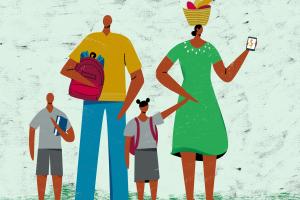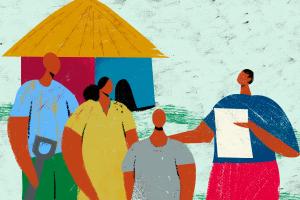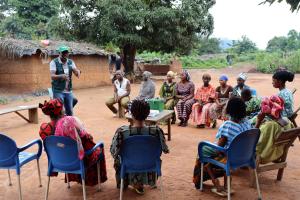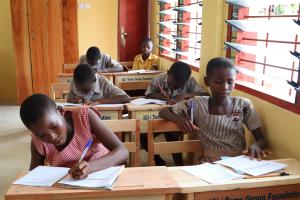This review examines evidence of the impact of unexpected shocks that either increased or decreased incomes on child labour, as well as the effects of policies and programmes to increase household incomes. It was conducted by the International Cocoa Initiative in partnership with the Swiss Cocoa Platform and State Secretariat for Economic Affairs (SECO).
The analysis of 50 studies shows a complex relationship between income change and child labour: while decreases in household income tend to increase child labour, increases in household income can cause child labour to rise, as well as to fall. These findings are particularly relevant in the context of the Coronavirus pandemic and related global economic crisis, which will cause smallholder farmers and their livelihoods to suffer. The findings from this report imply a serious risk of increased child labour as a result.
The evidence from this review also shows that income increases alone are not a silver bullet to solve the problem of child labour. While poverty reduction needs to be part of the solution, it is crucial we use this evidence on the different impacts of income changes on child labour to avoid adverse effects. Only through careful design and robust evaluation of policies and interventions to increase farmer incomes, can we ensure they also support reductions in harmful work by children.
Closely related to this report, ICI has contributed to a systematic literature review on how income shocks due to weather events, natural disasters, agriculture, health shocks, price shocks and transnational shocks affect child labour. This review has been published in the Review of Development Economics and can be accessed following this link.





